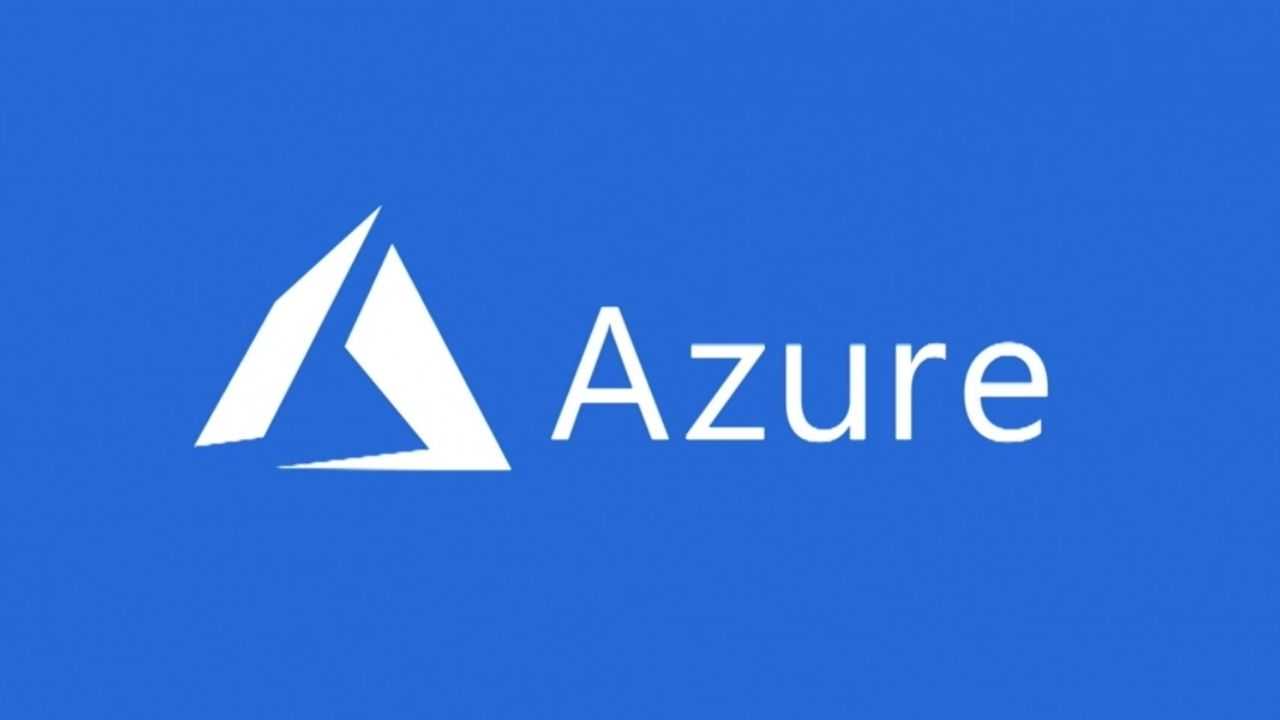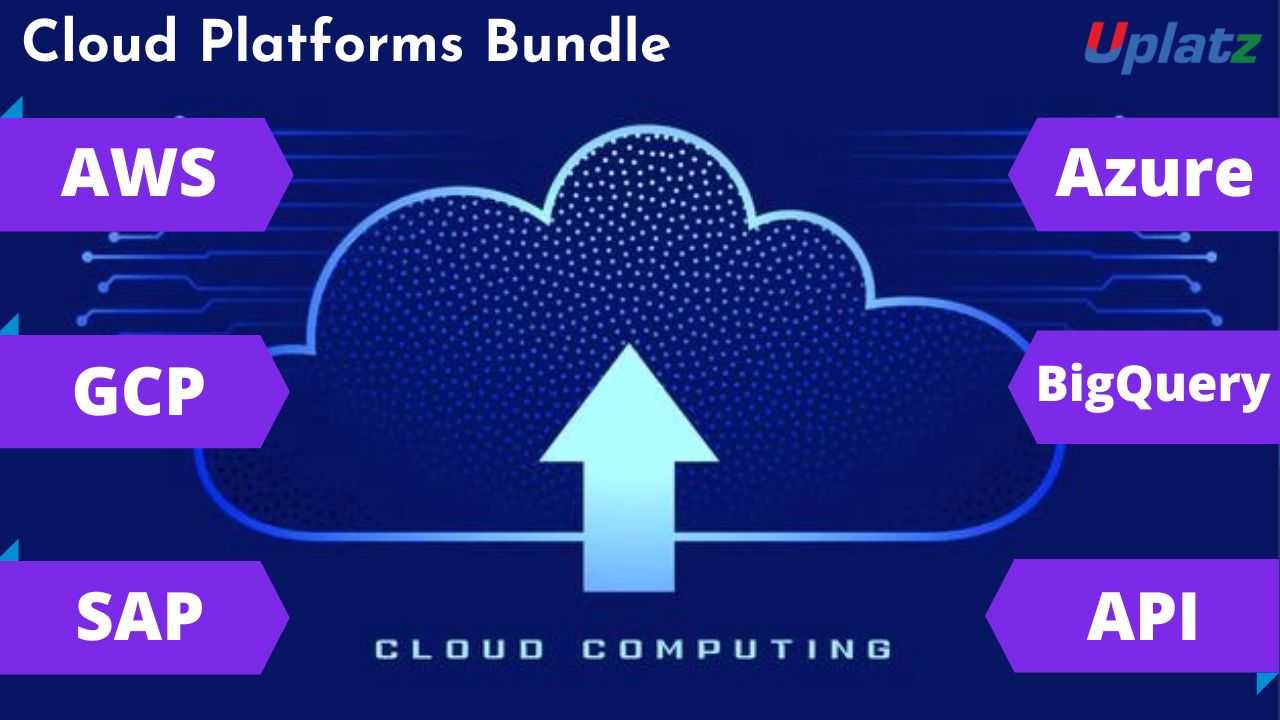Interview Questions - Microsoft Azure
Top azure interview questions for you to refer, which revolve around the roles of an Azure Solution Architect, Azure Developer, etc.Preview Interview Questions - Microsoft Azure course
Price Match Guarantee Full Lifetime Access Access on any Device Technical Support Secure Checkout Course Completion Certificate 93% Started a new career
BUY THIS COURSE (
93% Started a new career
BUY THIS COURSE (GBP 12 GBP 29 )-
 96% Got a pay increase and promotion
96% Got a pay increase and promotion
Students also bought -
-

- Microsoft Azure Fundamentals
- 40 Hours
- GBP 12
- 3673 Learners
-

- Bundle Course - Cloud Platforms
- 150 Hours
- GBP 22
- 1327 Learners
-

- Career Path - Cloud Engineer
- 300 Hours
- GBP 32
- 4412 Learners

This course by Uplatz focuses on commonly asked interview questions on Microsoft Azure. These Microsoft Azure Interview Questions have been designed specially to get you acquainted with the nature of questions you may encounter during your interview for the subject of Azure.
We have compiled a list of top azure interview questions for you to refer, which revolve around the roles of an Azure Solution Architect, Azure Developer and Azure System Admin.
Microsoft Azure is the second most leading Cloud service provider on the prospect. More than 80% of the Fortune 500 organizations trust Microsoft Azure for their Cloud service responsibilities because of its reasonable IaaS solutions. Along these lines, there are various businesses that are recruiting Azure certified specialists for several inside job postings. One of the essentially phenomenal and most favored Azure occupation jobs is that of a Cloud Administrator. This is the reason why Azure Administrators are in such high demand in the market.
It is just another set of cloud services that is used to construct, establish, and manage applications through Microsoft’s globally distributed network of data centers. It’s an elastic platform, that can be used to run applications on the cloud or simply improve the current applications with cloud capabilities.
In case you are among the candidates that are attempting to land a decent role as an Azure Administrator, then you should set yourself up well to land your dream job. Here is list of Azure Administrator job interview questions that are posed to an aspiring Azure Administrator.
Course/Topic - Interview Questions - Microsoft Azure - all lectures
-
In this lecture session we learn about Microsoft Azure, formerly known as Windows Azure, is Microsoft's public cloud computing platform. It provides a range of cloud services, including compute, analytics, storage and networking.
-
In this tutorial we learn about Azure lets you add cloud capabilities to your existing network through its platform as a service (PaaS) model, or entrust Microsoft with all of your computing and network needs with Infrastructure as a Service (IaaS).
-
In this tutorial we learn about The Azure Storage platform is Microsoft's cloud storage solution for modern data storage scenarios. Azure Storage offers highly available, massively scalable, durable, and secure storage for a variety of data objects in the cloud.
-
In this tutorial we learn about Azure Virtual Machines (VM) is one of several types of on-demand, scalable computing resources that Azure offers. Typically, you choose a VM when you need more control over the computing environment than the other choices offer.
-
In this lecture session we learn about Azure as a platform can be learned without knowing any programming at all. Although if you wish to deploy an application to Azure then you may need to write some configuration code or a deployment script. But for normal infrastructure management and other tasks you can use Azure.
-
In this tutorial we learn about Azure SQL Database is a fully managed database service, which means that Microsoft operates SQL Server for you, and ensures its availability and performance. SQL Database also includes innovative features to enhance your business continuity, such as built-in high availability.
-
In this lecture session we learn about Azure Table storage is a cloud-based NoSQL datastore you can use to store large amounts of structured, non-relational data. Azure Table offers a schemaless design, which enables you to store a collection of entities in one table.
-
In this lecture session we learn about Microsoft Azure VM Scale Sets are groups of individual virtual machines (VMs) within the Microsoft Azure public cloud that information technology (IT) administrators can configure and manage as a single unit. Administrators can use Azure VM Scale Sets to deploy complete services, rather than duplicate the same VMs.
-
In this tutorial we learn that Microsoft Azure certification exams are quite difficult to achieve but not impossible. A little knowledge and experience can work wonders for you. Moreover, you need to have determination and confidence which is essential to ace Azure certification.
-
In this lecture session we learn about Microsoft Azure, formerly known as Windows Azure, is Microsoft's public cloud computing platform. It provides a range of cloud services, including compute, analytics, storage and networking.
-
In this tutorial we learn about Azure is a cloud computing platform which was launched by Microsoft in February 2010. It is an open and flexible cloud platform which helps in development, data storage, service hosting, and service management.
After successful completion of this course you will be able to:
• This course will guide you to brush up on the skills of Microsoft Azure to crack the interview.
• Here, our focus will be on real-world scenario Microsoft Azure interview questions asked about cloud computing, Microsoft Azure, Azure CDN etc., And how to answer them.
• This course can help you learn the key concepts required to build your career.
The Microsoft Azure Certification ensures you know planning, production and measurement techniques needed to stand out from the competition.
Azure is a cloud computing platform and an online portal that allows you to access and manage cloud services and resources provided by Microsoft. These services and resources include storing your data and transforming it, depending on your requirements.
Azure is a huge collection of servers and networking hardware, which runs a complex set of distributed applications. These applications orchestrate the configuration and operation of virtualized hardware and software on those servers. The orchestration of these servers is what makes Azure so powerful.
Microsoft Azure, formerly known as Windows Azure, is Microsoft's public cloud computing platform. It provides a range of cloud services, including compute, analytics, storage and networking.
Uplatz online training guarantees the participants to successfully go through the Microsoft Azure Certification provided by Uplatz. Uplatz provides appropriate teaching and expertise training to equip the participants for implementing the learnt concepts in an organization.
Course Completion Certificate will be awarded by Uplatz upon successful completion of the Microsoft Azure online course.
The Microsoft Azure draws an average salary of $115,000 per year depending on their knowledge and hands-on experience.
Microsoft Azure is a good career because of its huge demand in the market and the need for trained and certified Azure Practitioners is also growing rapidly, because the number of people who know Azure is increasing.
The future of cloud computing is Azure and so much more Azure. For years, Microsoft has been creating a world where every computing, mobile, and smart device connects with Azure, becoming the cloud computing backbone used by a worldwide network of partners.
Note that salaries are generally higher at large companies rather than small ones. Your salary will also differ based on the market you work in.
Azure Cloud Engineer.
Azure WVD Implementation Analyst.
Azure WVD Implementation Lead.
Partner Technical Consulting IC4.
1. What do you understand about cloud computing?
· Cloud computing refers to the usage of computing resources (servers) on the internet (refers to the term cloud) for the purpose of storing, managing, analyzing, and processing the data. Here, instead of maintaining our own servers, we use the infrastructure provided and maintained by third-party vendors such as Microsoft, AWS, etc, and pay them based on the server usage time duration.
· Cloud computing enhances the speed of execution, ensures flexibility of resources, and easier scalability.
· Cloud computing can be used to attain high fault tolerance and high system availability and this can also be done dynamically as per the infrastructural requirements of the application.
2. Can you tell something about Azure Cloud Service?
· Azure Cloud Service is a classic example of a platform as a service (PaaS). This was designed to support those applications which demand high scalability, reliability, and availability all within the constraints of reduced cost of operations. These are hosted on virtual VMs and Azure provides more control over them by letting the developers install the necessary software and enabling them to control remotely.
· Azure cloud services are used for deploying multi-tier web-based applications in Azure by means of creating an instance of cloud service. It is also possible to define multiple roles such as web roles, worker roles, etc for the purpose of distributed processing. Azure cloud services help in the easier and flexible scalability of the application.
· Each role of the cloud service has its own purpose and thereby its own configuration and application files.
3. What are the various models available for cloud deployment?
There are 3 models available for cloud deployment:
· Public Cloud: In this model, the cloud infrastructure is owned publicly by the cloud provider and there are chances that the server resources could be shared between multiple applications.
· Private Cloud: Here, the cloud infrastructure is owned exclusively by us or exclusive service is provided by the cloud provider to us.
o This includes hosting our applications on our own on-premise servers or hosting the application on a dedicated server provided by the cloud provider.
· Hybrid Cloud: As the name itself says, this model is the hybrid combination of private cloud and the public cloud.
o This might include the scenario of using on-premise servers for processing confidential, sensitive data and using public cloud features for hosting public-facing applications.
4. Define role instance in Azure.
A role instance is nothing but a virtual machine where the application code runs with the help of running role configurations. There can also be multiple instances of a role as per the definition in the cloud service configuration files.
5. How many cloud service roles are provided by Azure?
Cloud service roles comprise a set of application and configuration files. There are 2 kinds of roles provided by Azure:
· Web role: This provides a dedicated web server belonging to IIS (Internet Information Services) that is used for automatic deployment and hosting of front-end websites.
· Worker role: These roles help the applications hosted within them to run asynchronously for longer durations and are independent of the user interactions and generally do not use IIS. They are also ideal for performing background processes. The applications are run in a standalone manner.
6. Why is Azure Diagnostics API needed?
· Azure Diagnostics API helps us collect diagnostic data such as performance monitoring, system event logs, etc from the applications that are running on Azure.
· For the verbose monitoring of the data, Azure Diagnostics has to be enabled for the cloud service roles.
· The diagnostics data can be used for building visual chart representations for better monitoring and also for creating performance metric alerts.
7. Define Azure Service Level Agreement (SLA)?
· The Azure SLA is a contract that ensures or guarantees that when two or more role instances of a role are deployed on Azure, access to that cloud service is guaranteed for at least 99.95% of the time.
· It also states that if the role instance process is not in the running state, then the detection of such processes and corrective action for the same will be taken 99.9% percent of the time.
· If the mentioned guarantees are not satisfied at any point in time, then Azure credits a percentage of monthly fees to us depending on the pricing model of the respective Azure services.
8. What is Azure Resource Manager?
Azure Resource Manager is a service provided by Azure to provide management and application deployment in Azure.
The resource manager provides the management layer that helps the developer to create, modify or delete the resources in the Azure subscription account. This feature comes in handy when we have requirements like managing access controls, locks, ensuring the security of the resources post-deployment, and organization of those resources.
9. What is NSG?
NSG stands for Network Security Group that has a list of ACL (Access Control List) rules which either allows/denies network traffic to subnets or NICs (Network Interface Card) connected to a subnet or both. When NSG is linked with a subnet, then the ACL rules are applied to all the Virtual Machines in that subnet.
Restrictions of traffic to individual NIC can be done by associating NSG directly to that NIC.
10. VM creation is possible using Azure Resource Manager in a Virtual Network which was created by means of classic deployment. True or False?
False. Azure does not support this.









